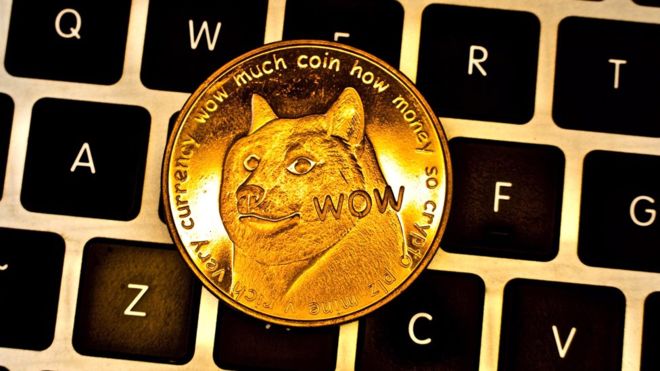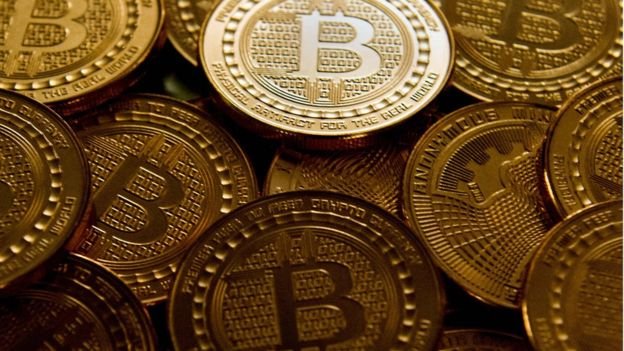
It all started with an absurd joke, a satire on the bitcoin that was born from "doge", one of the most popular internet memes.
At first, nobody paid attention to him. Who was going to take seriously a cryptocurrency that had as a logo the meme of a Japanese dog?
And it was cause for laughter ... until it ended up reaching multi-million dollar figures.
The idea was Billy Markus, an American programmer who worked as an engineer at IBM, and Jackson Palmer, an Australian who was in charge of the marketing department at Adobe Systems.
Together, they launched a new currency in 2013 which they called "dogecoin", with the intention of making fun of the "crypto-fever".
How to buy bitcoins ?: basic guide to invest in the virtual currency
Why traditional banks do not trust the controversial cryptocurrencies and the so-called ICO operations
Soon, your currency began to expand through internet forums. 15 days after launch, its value had multiplied by 300. "The price is not even important," said Markus then.
But over the years -and, especially, in December of 2017- its value began to inflate, until reaching the US $ 2,000 million -US $ 1,928, to be exact- during the first weekend of January of this year.
Did the joke come to the business world?
How the Winklevoss twins became the first bitcoin billionaires
Who have made bitcoin one of the most profitable investments of 2017
"Worrying"
Over the last few days, the price of dogecoin has not stopped fluctuating. At present, its value exceeds US $ 1.2 billion, according to Coinmarketcap.com.
But the rebound of December has aroused the alarms of the most "crypto-skeptics".
The dogecoin (still) is far from reaching the bitcoin, the queen of virtual currency, which today exceeds US $ 14,000 per unit and has a total value of US $ 240,000 million.
Although, considering that it began to be a parody of the bitcoin boom, it is interesting to know what its creators think.
Palmer was not very happy. "The fact that most conversations in the media and between individuals focus on the potential investor is worrisome," he said earlier this month.
"A giant scam is about to explode in the face of many people" warns the "Wolf of Wall Street"
Until its recent boom, dogecoin was little more than a joke on internet forums.
But the reputation of the cryptocurrency grew to the extent that the community began to test their efforts related to the world of sports.
In 2014, its investors donated dozens worth US $ 55,000 to retired NASCAR driver Josh Wise.
That same year, they raised US $ 25,000 to support a Jamaican Olympic team, and the community also water projects in Kenya.
But is it worth investing in dogecoins?
"One thing to keep in mind is that there are many more Dogocoins than Bitcoins," explains Robert Plummer, the BBC's economics correspondent.
"The rules that support bitcoin stipulate that only 21 million bitcoins can be created, and that figure is getting closer and closer." It is not clear what will happen to the bitcoin value when that limit is reached.

Dogecoins are "mined" (or manufactured) in the same way as bitcoins, that is, they are created through computer processes.
"This is like the Cosa Nostra": this is how the exclusive and clandestine club of bitcoin mining and other cryptocurrencies operates in Venezuela
"However, unlike bitcoin, there is no limit to the number of dogecoins that can be produced, and today they reach a staggering 100 billion," says Plummer.
"That helps explain why each dogecoin is worth less than US $ 0.02 today, while bitcoins have been worth up to about US $ 20,000."
"Little trust"
Common sense tells us that scarce goods are more likely to maintain their value than the most abundant ones.
"But in the world of cryptocurrencies, common sense is perhaps a poor guide to future behavior," says Plummer.
And in the world of experts in economics, there is still a lot of skepticism about each of the new cryptocurrencies that come to market.
Ethan Ilzetzki, of the London School of Economics, in the United Kingdom, tells the BBC that "a digital unit has no intrinsic value, unless it can be used in transactions."
"I can not name you a single cryptocurrency that is more useful in transactions than a credit card denominated in dollars, pounds or yen," adds the specialist.
"There is nothing intrinsically wrong with digital currencies provided privately, but they need to be well designed and well thought out."
"They are very valuable because people say they are worth it, I have little confidence that they will be worth much in the long term."